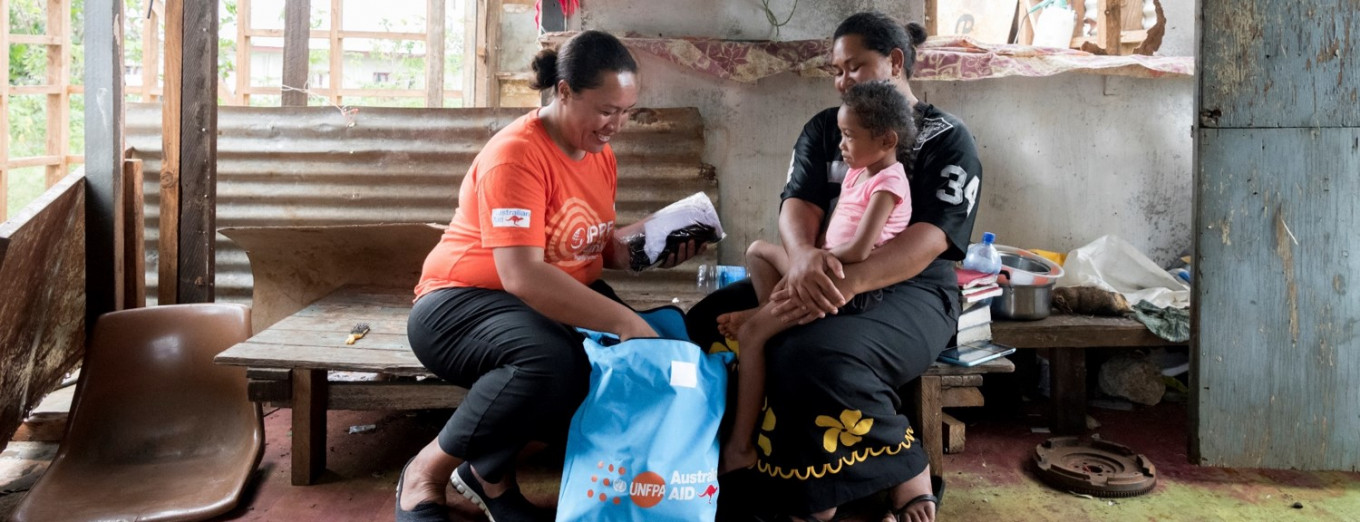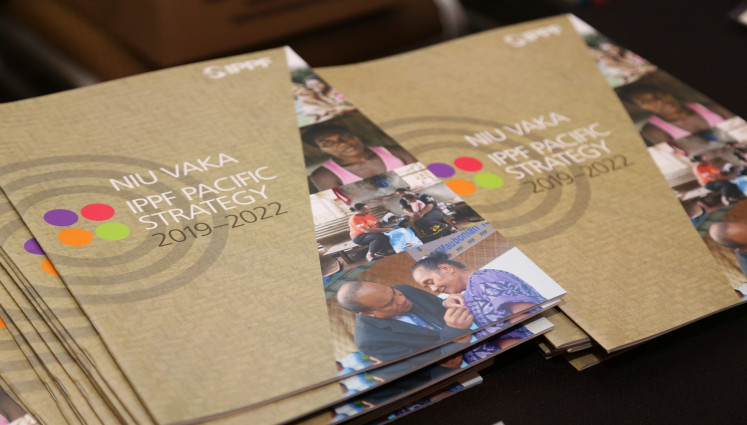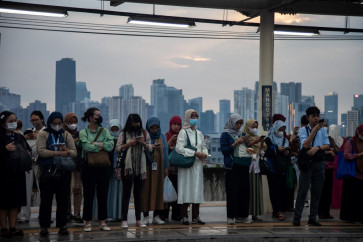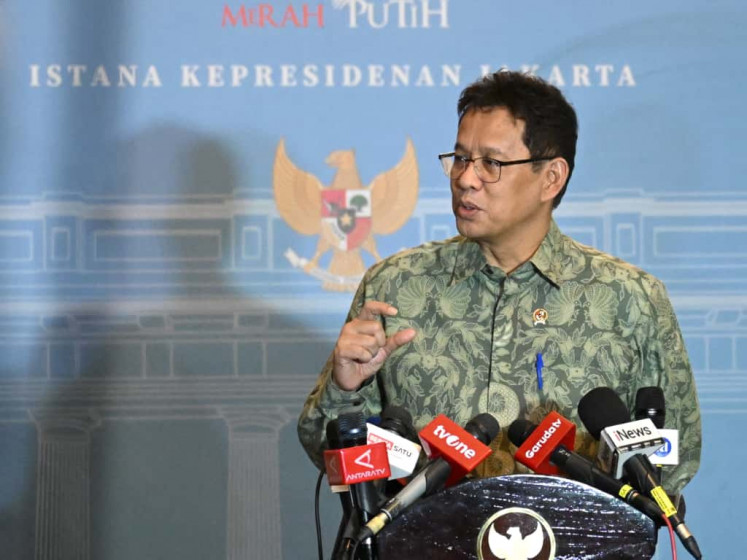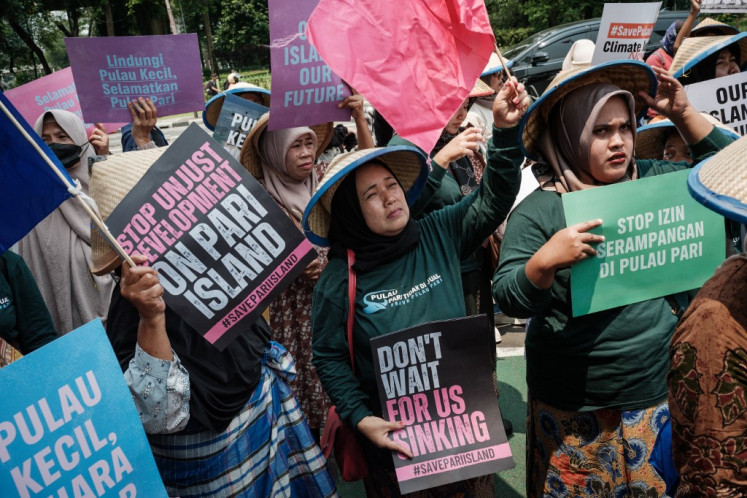Popular Reads
Top Results
Can't find what you're looking for?
View all search resultsPopular Reads
Top Results
Can't find what you're looking for?
View all search resultsLeave no one behind: Upholding sexual reproductive health despite pandemic
Change text size
Gift Premium Articles
to Anyone
W
ith the pandemic wreaking havoc across the world, it has also intensified obstacles to quality healthcare services, harming goals to achieve sexual reproductive health for all.
The Asia Pacific region, home to 60 percent of the world’s population, or around 4.3 billion people, including three of the world’s four most populous countries – China, India and Indonesia – has not been not spared.
Many women in the Asia Pacific region do not have sufficient access to health care.
In the region, more than 30 million women a year reportedly do not give birth in a health facility, more than 45 million women receive inadequate or no antenatal care, while more than 2 million women want to avoid pregnancy but cannot use modern contraception, not to mention the many unsafe abortions taking place.
The barriers to quality healthcare services are mainly lack of access, availability, affordability and acceptability, which contribute to inequalities and inequities.
International Planned Parenthood Federation director of programs and operations in the Pacific Karen Hill explained that the Pacific region held some of the poorest health and social development indicators globally.
Hill said the region had the highest level of unmet need for contraception in the world, with stagnant, and in some cases declining, contraceptive prevalence rates, and had shown mixed progress toward reducing adolescent birth rates and total fertility rates.
“[There’s] unacceptably high maternal mortality in many Pacific countries,” she said in her presentation.
“One in four women in the Pacific wants to use modern contraception but is currently unable to do so […].”
She made the comments during her plenary presentation, titled “SRHR in the Pacific: A Strategic Approach”, during the third session of the 10th Asia Pacific Conference on Sexual Reproductive Health and Rights (APCRASRH10) virtual conference on July 20.
The conference was part of a series organized by the steering committee of APCRSHR10, UNFPA and Citizen News Service (CNS).
Symbolic: The Niu Vaka strategy embodies the ideas of sustainability, resourcefulness, resilience and connectedness to give people in the Pacific free choices about their sexuality and wellbeing without discrimination. (Courtesy of IPPF Pacific/-)In an effort to turn the situation around, her organization has introduced the so-called Niu Vaka Strategy to enable people to make free and informed choices about their sexual reproductive health and rights (SRHR) – key to improving the health and wellbeing of individuals and families, and a significant driver of economic and social development – without discrimination.
Niu (coconut) trees are often referred to as the tree of life, as not part of the coconut goes to waste and they float between the islands of the Pacific, setting down roots wherever they land. As such, the coconut is considered a powerful symbol of resilience and renewal as well as connectedness.
Meanwhile, vaka (canoes) – used throughout history by Pacific islanders to travel vast distances between islands – link the Pacific islands together, symbolizing their shared history and collective identity.
“Niu Vaka embodies the ideas of sustainability, resourcefulness, resilience and connectedness,” Hill said.
Key to the strategy, she said, was to focus on all, leaving no one behind, applying local solutions guided by evidence, working in partnership with others, embedding diversity in work and being accountable to donors, partners and the people they serve.
Thanks to the strategy, she said nine Pacific island governments were now working to increasingly promote, respect, protect and fulfil commitments to SRHR and gender equality.
The strategy has shown positive progress, with the total number of SRH services offered at mobile clinics rising from 89,285 in 2018 to 120,705 last year, and the number of people reached with positive SRHR messages rising from 259,438 to 872,749 during the same period. Increasing numbers of young people have also been reached with a complete series of CSE curriculum.
Separately, Indonesia’s efforts to provide family planning services and reproductive health programs have not gone unscathed by the pandemic.
The National Population and Family Planning Board (BKKBN), the authority overseeing the country’s family planning programs, found that the number of birth control program participants dropped by more than 1 million from January to April. There are currently 28 million program participants across the country’s 34 provinces.
He said that based on data gathered by the BKKBN, the use of contraceptives had plummeted to 35 percent across Indonesia during the same period, which could result in an estimated 15 percent jump in unplanned pregnancies in 2021.
BKKBN head Hasto Wardoyo said during a recent seminar the government had committed to revitalizing its birth control program to reduce pregnancies, so that all Indonesian citizens could live healthier.
“However, we have seen quite a significant decrease in public participation during the current pandemic,” Hasto said.
The decrease in birth control use, he said, could be attributed to limited access to reproductive health professionals, as many doctors and midwives had closed their clinics amid the pandemic.
With the pandemic still in full force, choices and rights to sexual and reproductive health care must be respected regardless, according to Caroline Homer, coprogram director of maternal, child and adolescent health at Burnet Institute and visiting professor in the Faculty of Health at the University of Technology Sydney.
“Prioritize essential health services, adapt to changing contexts in needs. Use telehealth, digital communications, rethink how to deliver services rapidly and optimize the health workforce capacity,” she said during the conference’s second session.
“We need to fund public health and remove financial barriers to access. Monitoring of essential health services must continue. Use digital platforms to support essential health service delivery. We must pay special attention to the poorest and the most vulnerable.” (ste)

